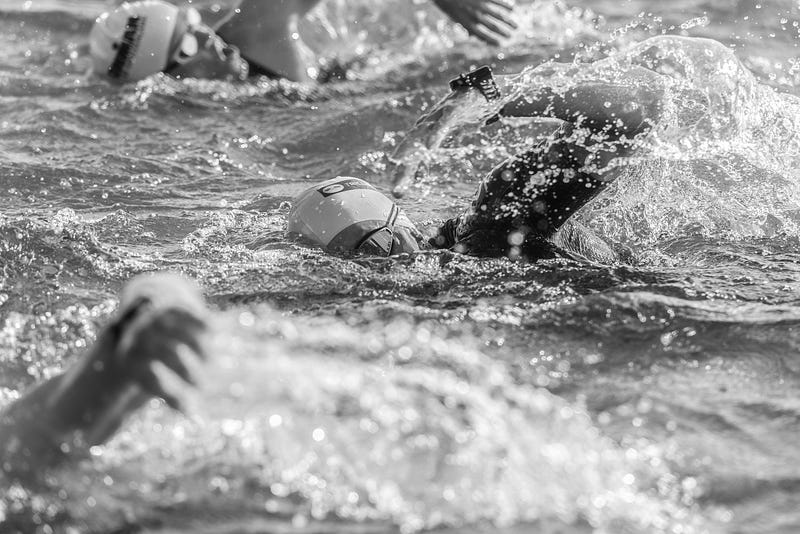But do we really understand what mental toughness is?

A better understanding of the psychological factors that elevate sporting performance will lead to improved evidence-based, practical, psychological intervention for athletes.
During competition, an athletes’ behavioural responses rely on various psychological factors, including mental toughness, and its role is pivotal in supporting adaptive responses to pressure.
Definition of Mental Toughness and Theoretical Background
Mental toughness has been widely recognised, in both training and competition, by coaches and athletes, as an important, multidimensional, psychological construct related to performance enhancement in sport.
Researchers have suggested that mental toughness provides a potential advantage over opponents by enabling individuals to cope better with the demands that sport places on them, whilst maintaining consistency in determination, and focus. Importantly, it also provides the perception of being in control under competitive pressure.

Research has attempted to define mental toughness, along with its constituent parts, to better understand the impact the construct has on how athletes respond to stress, to facilitate their development, and to define appropriate instruments for measurement.
Much of the early research, was conducted to clearly define the concept of mental toughness and relied heavily on the theoretical understanding of the related concepts of resilience, and hardiness.
Resilience
Resilience has been described as an individual’s ability to bounce back from life’s challenges and unforeseen difficulties, providing mental protection from emotional and mental disorders.
Resilience is defined as a reduced vulnerability to environmental risk, and stress. It has a protective effect, enabling individuals to maintain their functioning, and is often linked to the emergence of positive psychology.
It is not the experience of hard times that determines whether we succeed or fail, but how we respond. The resilient individual has an internal drive, and flexible thinking, to confront new challenges and an ability to focus on that which is within their control.
Resilience is identified with an improved outcome for individuals from similarly adverse backgrounds or experiencing comparable, challenging experiences.
A lack of resilience should not be confused with weakness but rather a vulnerability to challenges may allow resilience to develop. Exposure to stress may have the beneficial effect of increased resistance to future, similar stressors.
Resilience training interventions have shown positive results in both the workplace, and in sport, providing benefit, not only in dealing with stress and anxiety, post-traumatic growth but also as an enabler for greater accomplishments.
Recently, resilience has been described as a dynamic ability to maintain functioning in response to challenges through facilitative adaptations, involving metacognition processes, including reflecting on mistakes.
Hardiness
Hardiness has its conceptual roots in health psychology, with researchers particularly focused on the relationship between stress and illness, and the impact of personality in recovering from illness. An individual high in hardiness recognises there is a choice regarding handling externally triggered events by maintaining an internal locus of control (Kobasa, 1979).

Subsequent research, identified individuals higher in hardiness as having a more healthy, high-density lipoprotein (HDL) cholesterol, and a lower body mass index (BMI), providing protection against cardiovascular disease.
Hardiness can buffer an individual against stress, illness, and life events by impacting on an individual’s perception of a situation, or event, and subsequently affect behaviour through re-interpretation into something less threatening.
The ‘hardy’’ person is less likely to avoid the stressor but instead will become involved, and present, in whatever one does, or encounters.
Previous research has established hardiness as a personality trait comprised of three interrelated dimensions:
- Control, a belief that the individual is involved, rather than helpless, in life’s outcomes
- Challenge, an acceptance that change is normal and provides opportunity
- Commitment implies activity, and involvement, rather than passivity and avoidance.
Business executives identified with increased levels of hardiness have a reduced occurrence of illness resulting from stress.
Understanding Mental Toughness
The related, but separate term ‘Mental Toughness’ aims to capture the concept, or trait, that actively determines how an individual deals with pressure, stress, challenge, and even success. All of which have their unique challenges.
Since 2002, and building on research into resilience and hardiness, a key focus has been to remove the ambiguity around mental toughness through identification, and definition, of its key characteristics using two distinct approaches.
The first approach has been to provide a better understanding of mental toughness and its development through qualitativeresearch methods. The aim being to understand the ‘quality’ of mental toughness, rather than the volume.
The second approach, using quantitativemethods (measuring the amount of mental toughness), has involved researchers building upon existing psychological theories, from non-sporting areas, including health psychology, to develop measures, and models, to investigate mental toughness.
Qualitative designs, including unstructured, or semi-structured techniques have provided important insights into the early development of mental toughness and provided definitions for quantitative research.

However, despite early success, concerns have been raised regarding qualitative methods, including:
- Reliance on the analysis of self-report questionnaires rather than scientific investigation
- Failure to provide ongoing advancement in the conceptual understanding of the development of mental toughness
- Inability to generalise much of the published qualitative research due to the focus on elite athletes.
Characteristics of Mentally Tough Performers
Researchers initially attempted to qualitatively define mental toughness and identify its key characteristics through interviewing athletes and their coaches.
One of the most cited of these studies was performed by Jones and colleagues (2002), who sampled athletes, from both individual and team sports, that had previously represented their country in major events, including the Olympics.
Participants took part in focus groups to identify personal constructs in relation to mental toughness and individual interviews were subsequently held to confirm and rank the mental toughness attributes identified. Their research, and accompanying analysis, defined mental toughness as being
Both natural and developed, providing an advantage over opponents through an improved ability to cope with the demands of training, competition, and lifestyle, whilst remaining more consistent, attention focussed and controlled under pressure.
A list of 12 ranked attributes was proposed to develop mental toughness, including, amongst others:
- A steadfast belief in the ability to achieve goals
- Very strong motivation to succeed whilst maintaining focus despite distractions,
- A disregard of other athletes’ performances
- An ability to excel under the pressure of competition
Research by Jones made an important contribution to the existing body of knowledge around mental toughness by providing a comprehensive definition of mental toughness, along with a detailed breakdown of its elements, and identifying it as a cross-discipline psychological construct important to success in sport.
However, as with other early studies into mental toughness, there was a lack of clarity regarding what mental toughness really is, or how it is developed, and a limited consensus regarding its common conceptual elements.
Criticisms have also been raised regarding small sample sizes, the assumption that athletes and sports professionals interviewed have a clear understanding of mental toughness, and the premise that the perception of mental toughness is homogeneous across sports.
It was observed that sports professionals viewed both positive and negative critical experiences, and incidents, as key to the development of mental toughness, and that it, along with maintenance, occurred in a particular dimensional order: attitude and mindset, training, competition, and post-competition.
The findings raise a further question:
To what degree can psychological training programs develop mental toughness?
Indeed, life and sporting experiences, social support, motivation, and personality are all likely to underpin the decisions and behaviour that have led to success as an endurance athlete.
Single Sport Qualitative Research
Several single sport studies have been conducted to produce a more context-rich understanding of mental toughness and its development in athletes.
Bull and colleagues in 2005, conducted a key study that focussed on the development of mental toughness in cricket. A total of 12 cricketers, rated by their coaches as mentally tough were interviewed. Thematic analysis was then used to understand the development, maintenance, characteristics and attributes of mental toughness. The authors concluded mental toughness is comprised of similar attributes to those highlighted by Jones, including self-belief, desire, and motivation, along with dealing with pressure and anxiety.
The ongoing development and maintenance of mental toughness was strongly influenced by both early environmental factors, including parenting, later exposure to international level sport, and competitor’s mindset.
Despite the papers failure to specify the term mindset, or provide conceptual clarity, the results led to improvements in coaching. This included the involvement of sport psychologists and an intervention programme to support the development of mental toughness in future cricket generations.
A later, single-sport study investigated soccer players and provided further support for the definition of mental toughness provided by Jones, with one clarification. Mentally tough athletes always, rather than generally, cope better with both the pressure and the demands of the sport.

Research also ascertained that the environments the player is placed in throughout their early career are essential to the development of mental toughness and may inform methods to teach less experienced players coping strategies.
However, it is questionable whether a person can be mentally tough all the time, leading to the suggestion that mental toughness is a state-like concept; whilst some properties may persist, it may vary across time and situations as a result of changing goals.
How do we measure mental toughness?
Crust and Clough in 2005, identified mental toughness as a trait-like dimension of personality, extending the conceptualisation of hardiness by adding confidenceto the three existing concepts of, control, commitment, and challenge.
Their research identified a mentally tough athlete as someone who
- Views negative experiences, or situations as challengesto be overcome
- Believes they are influential in controllingtheir future life experiences
- Remains committedto achieving their goals
- Confidentin their abilities to overcome negative life experiences.
Mentally tough individuals are likely to be resilient to stress, thrive in competition, have reduced anxiety and be high in self-confidence.
Their findings suggested a strong association between mental toughness and physical endurance during a task to hold a dumbbell suspended with a straight arm in front of the body. They speculated that mentally tough participants benefit from a buffering effect that impacts either the attention to, or the perception of, pain.
However, there were some major limitations with the study. The nature of the task was inherently boring, with no consideration given to previous weight training experience or existing participation in sports that may physically prepare the participant for performing the task.
Context may also have an effect, the pressure of producing good results in a tough training session, or more importantly in competition, is more challenging than in a quiet room in a research laboratory. The dumbbell holding task is therefore not ecologically valid or representative of most sports or endurance activities and raises doubt on the assumption that mental toughness acts as a buffer during demanding conditions.
There have also been challenges to the mental toughness questionnaire they used regarding the underlying structure and conceptual framework it was built upon.
Critical Appraisal of Mental Toughness
In summary, there are numerous, and varied, definitions of mental toughness, though all share many similarities.
Psychological attributes, and in particular mental toughness, have been linked to success, including the ability to handle pressure and adversity, resolve to overcome failures or possession of superior mental skills for use during performance.
Early definitions of mental toughness were based on the experience and opinion of sports professionals, including athletes and coaches and relied on analysis of largely self-report questionnaires rather than scientific investigation.
Despite criticism, the concept, model and theories of mental toughness continue to evolve.
Attributes of mental toughness appear to influence an individual’s appraisal and coping of a particular situation and subsequently moderate the relationship between stressors and cognitive, emotional and behavioural responses.
Despite the conceptual challenges to mental toughness and its measurement validity mental toughness remains highly valued by coaches and athletes alike.
However, according to Gucciardi and Gordon (2013) mental toughness may not be a holistic concept and should not be viewed in contextual isolation. Mental toughness may be specific to an environment or situation, and ignorance of this contextual factor may lead to contradictory results.
A number of facets of mental toughness, therefore, remain unanswered and require further research:
- Is mental toughness a trait that we are born with? And what are the evolutionary underpinnings?
- Is mental toughness context dependent? And inconsistent across different situations?
- Is mental toughness shaped by the adoption of coping mechanisms, goal setting or attentional focus?
Once these questions are answered we may be able to better understand if there is an optimum balance between mental toughness and mental sensitivity, and in which environments.
Key References
See also, within Medium: limits of endurance, adaptation, mental toughness, evolutionary endurance, aerobic fitness, 10,000 hours
Crust, L., & Clough, P. J. (2005). Relationship between Mental Toughness and Physical Endurance. Perceptual and Motor Skills, 100(1), 192–194.
Gucciardi, M., Hanrahan and Gordon (2013) ‘Measuring Mental Toughness in Sport’ in Daniel F Gucciardi and Sandy Gordon (Eds.),Mental Toughness in Sport — Developments in Theory and Sport (pp135–162), Abingdon: Routledge.
Jones, G., Hanton, S., & Connaughton, D (2002). What is this thing called mental toughness? An investigation with elite performers. Journal of Applied Sport Psychology, 14, 211–224.
Kobasa, S. C. (1979) Stressful life events, personality and health: an inquiry into hardiness. Journal of personality and social psychology, 37 (1), 1–11.
Rutter, M. (1985). Resilience in the face of adversity: Protective factors and resistance in psychiatric disorder, British Journal of Psychiatry, 147 (6), 598–611.
Rutter, M. (2012). Resilience as a dynamic concept. Development and psychopathology, 24(2), 335–44.
Recent Comments